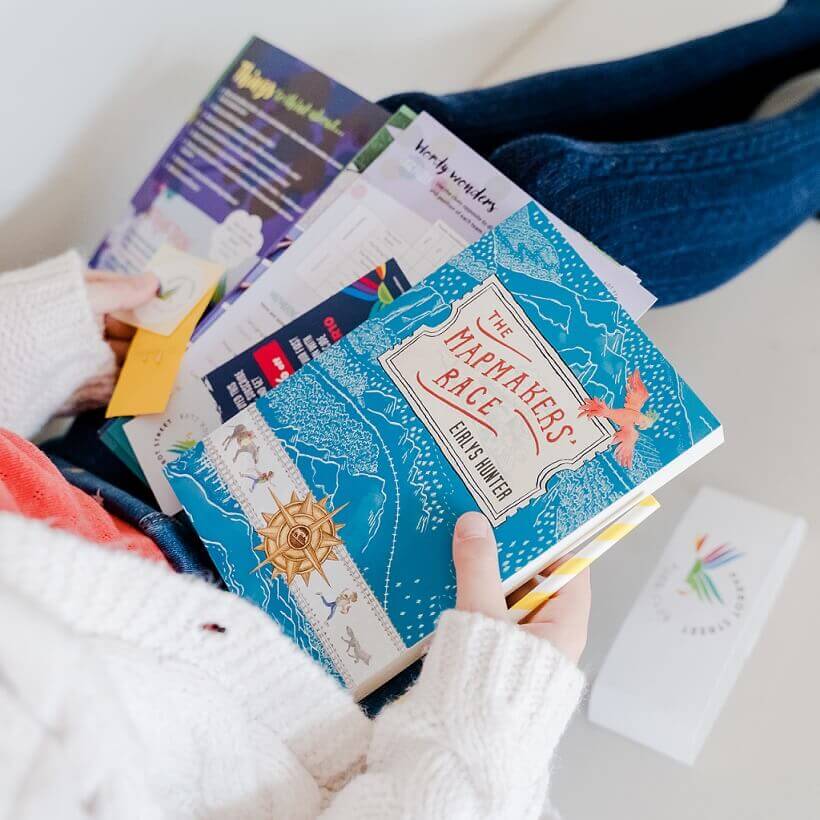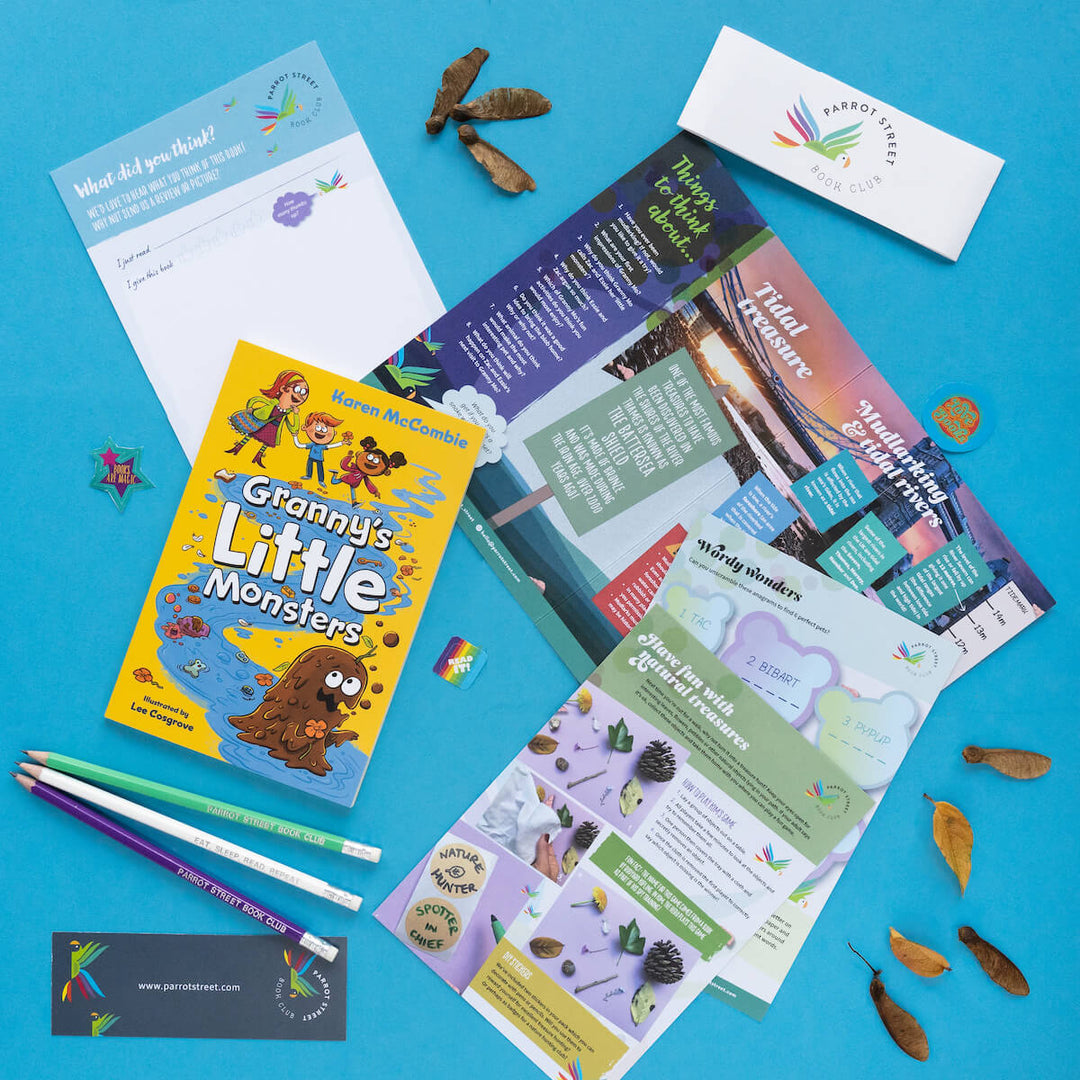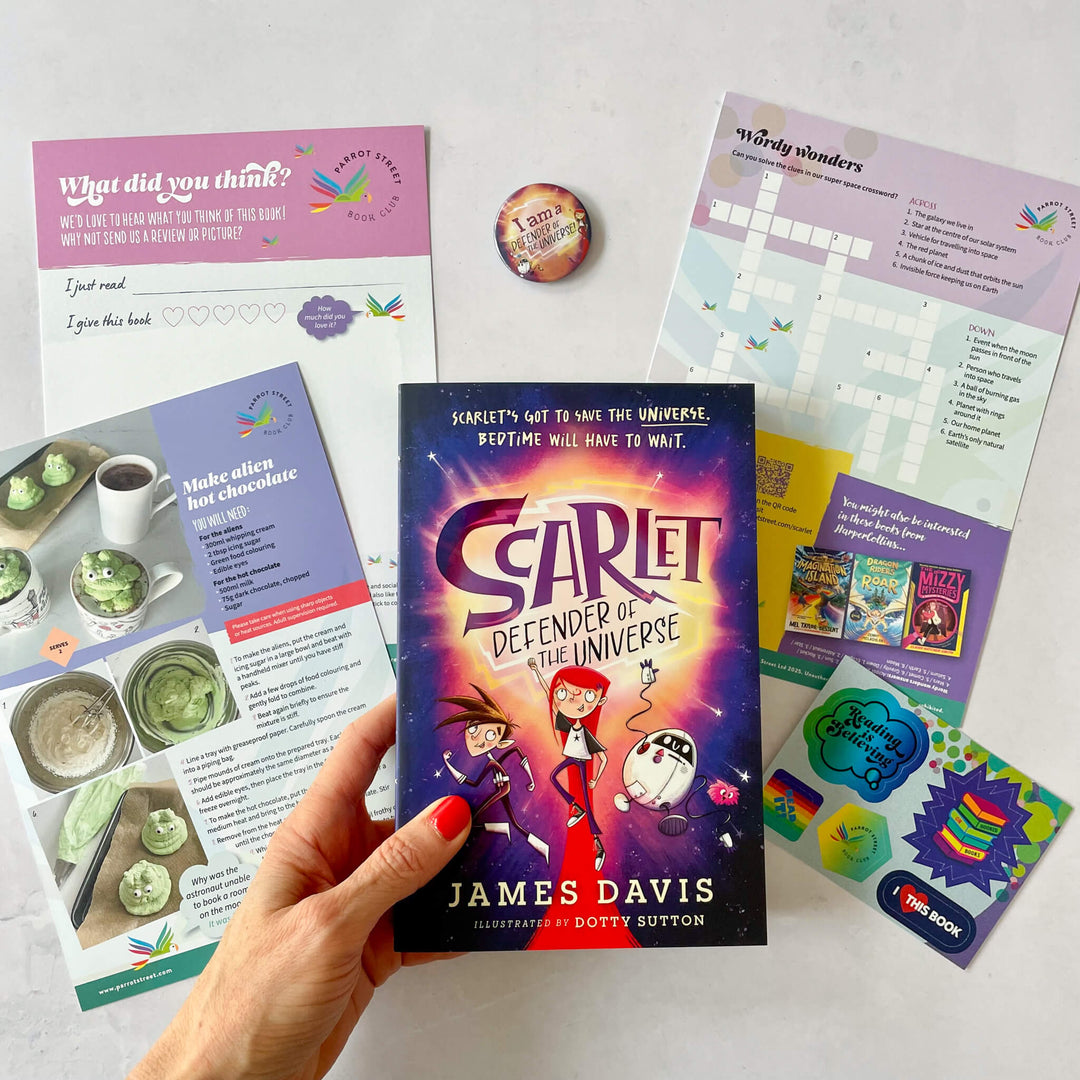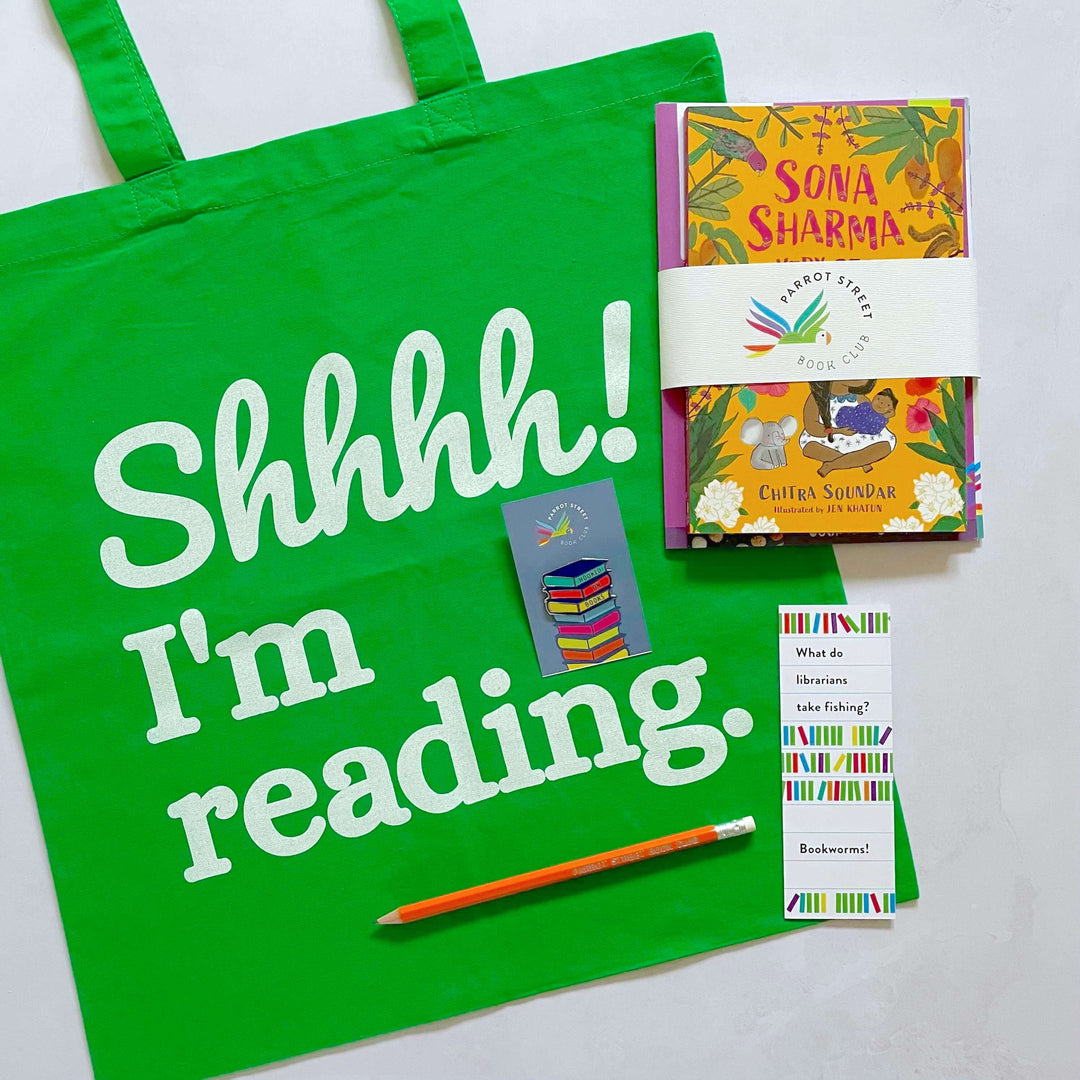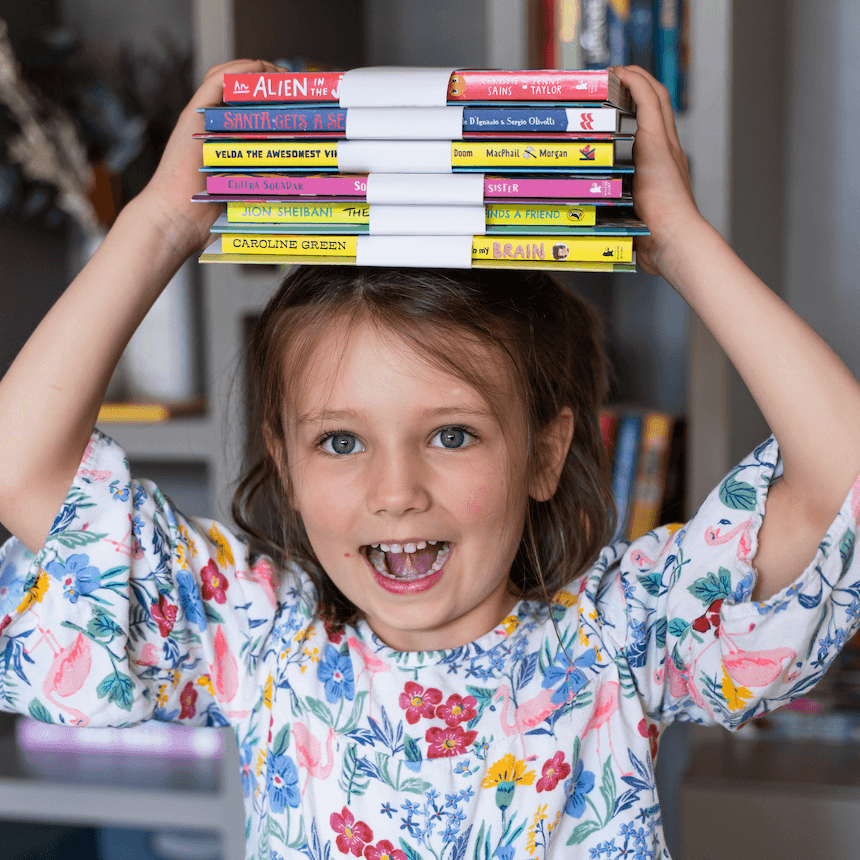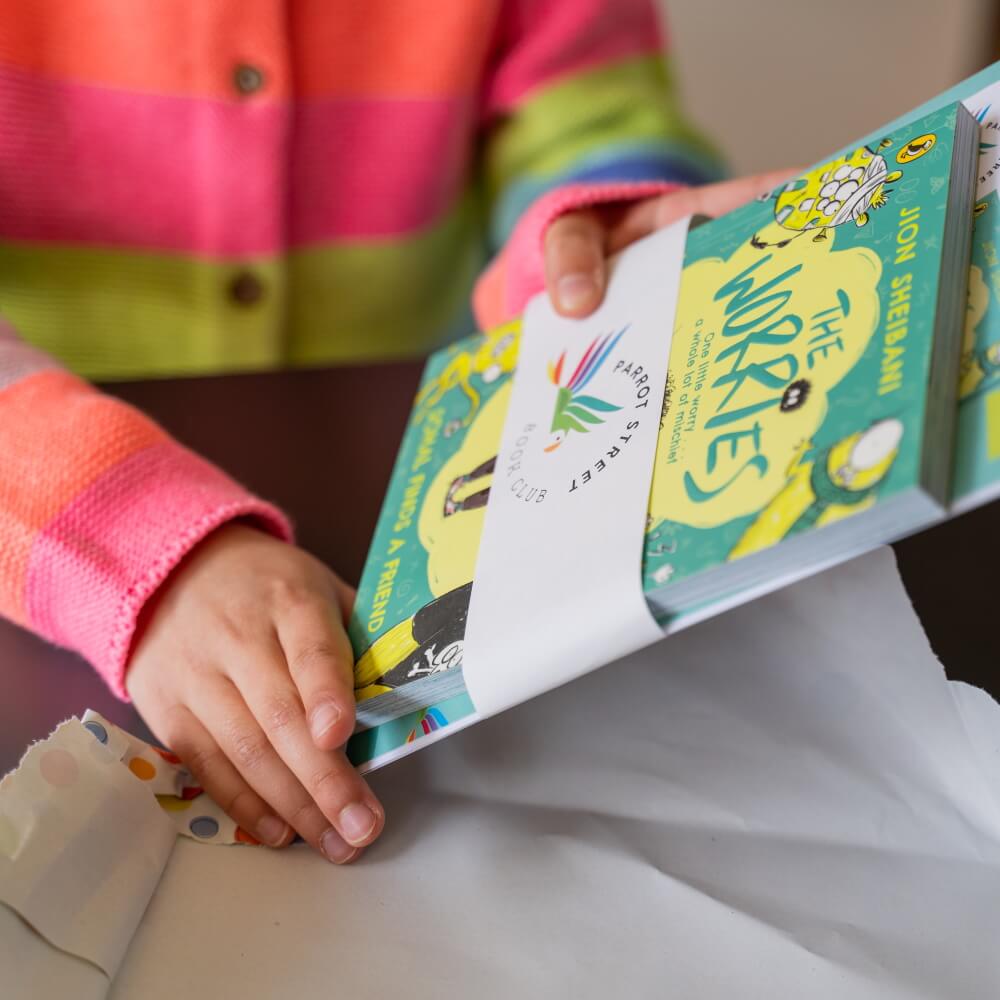Pre-teen and teenage reading habits and why we should keep them reading

As we prepare to launch the first boxes in our brand-new reading category for kids aged 12+, secondary school teacher and Teach First tutor Sarah Atkinson tells us why it's so important to keep teens and pre-teens reading and how parents can help keep their teenagers' reading habits alive.
Why is it important that children continue to read, particularly during the early years of secondary school?
The early years of secondary school are an exciting and turbulent time. Increased freedom and responsibility, new friends, new subjects and new emotions. Just at the point when reading can offer our children valuable support, both academically and emotionally, many abruptly seem to stop enjoying books. Finding ways to encourage and maintain reading at home is vital.
Why is it so important?
Fundamentally, reading proficiency underpins access to the school curriculum. Across all subject areas, the literacy demands increase significantly at secondary school. As an English teacher, I see despair in GCSE classes when students cannot get to grips with an exam text. Reading, like all skills, requires regular practice and without it, students lack the concentration, the vocabulary, and the ability to make connections to fully comprehend exam material.
Academically, it is crucial that our students maintain and develop their reading skills as they progress through school. Reading speed and comprehension, broad vocabulary, developed understanding of the intentions of characters and authors, skimming and scanning skills and the ability to make connections within and between texts can all develop naturally through reading for pleasure. These skills underpin academic success.
When a student can access the content of a lesson, they are more motivated and engaged. They are able to use the experiences, emotions and language they discover in the books they read at home to form responses, opinions and questions about the material they encounter in school. They have the confidence to ask about words and concepts they do not yet understand because they are not overwhelmed by the reading requirement.
Even more importantly, reading challenging and appropriate literature enables students to explore their thoughts and feelings about a wide range of issues they are likely to encounter as they grow up. Observing a character navigate school, family, friendship and social issues offers a safe distance for young teenagers to explore their own emotions and opinions. Reading widely gives different perspectives and experiences of these increasingly important and complicated issues. It can address misconceptions and give children the words to begin to shape and articulate their emerging feelings.
Knowledge of different contexts and experiences can also offer valuable perspective on their own concerns. At a time when young teens can feel powerless over aspects of their lives, being able to draw on examples of all kinds of different lives, or to escape into a wild adventure, can offer a sense of control over their own narrative.
Finally, in a world of short, unconnected video content, engaging with a complete story develops vital understanding of structure, action and consequence and hopeful resolution.
Why is it difficult?
They key reason is access to the right reading material. Most secondary schools set aside time for silent reading but it is not typically monitored beyond the time being protected. I routinely see children falling back on old favourites and they are not challenged or engaged. Frequently students say reading is boring. We have to support them to find the right content for this stage of their lives.
Allocation of time can also be a reason that reading for pleasure slips out of children’s lives at this time. Cognitive overload and tiredness after school as well as the increasing importance of social interactions - many have recently been allowed a mobile phone and access to social media – can make it hard for this age group to allocate sufficient time for reading.
What can help?
During primary school, other people take responsibility for a child’s reading. Teachers and parents communicate about which books are read and literacy is approached as a core component of the day. At secondary school, students are more responsible for themselves. Reading sometimes is seen as only part of English lessons and disengagement is not always challenged across the board.
Parents and carers can help at this point by ensuring young teens know the value of reading and by helping to allocate time for it. Acknowledge the strain on their time but champion reading and support them to find space and time for it. Routine and consistency in developing positive habits around reading are key.
Read together. When they no longer want to read together, read the same material. This enables meaningful discussion around the issues and characters. It can offer the chance to explore issues through the proxy of the characters and texts and a low-pressure opportunity for children to ask questions. Take an opportunity to demonstrate methods for looking up vocabulary when you read together. We assume students are proficient at this but many are not and the definitions online can be inaccessible.
Help them find material that they want to read. Encourage children to try all sorts of genres and mediums and to form opinions about their likes and dislikes. Look for opportunities to make reading a shared activity and relevant to their lives. After a cinema trip, look up the film critic reviews and talk about the role that reading and writing can play in adult life in terms of employment, pleasure, connection and interest. Ensure that children can make the connection between exciting possible career paths and fundamental reading and writing skills.
Above all, discuss and share reading wherever possible and speak positively about reading and the pleasure it can bring as a lifelong hobby.
Sarah Atkinson is a secondary school teacher in West Sussex and tutors on the Teach First programme.
Find out more about our brand new Macaw reading category for 12 to 14-year-olds and sign up here.
JOIN OUR EMAIL LIST
Children's book news straight to your inbox
We love sharing product updates, book recommendations, children's activity ideas and special offers via email.





